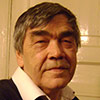Холдор Вулқоннинг ижодий саҳифаси.
Меню сайта
Разделы новостей
| Ҳикоялар [8] | Ҳажвиялар [65] |
| Мажмуалар [12] | Таржималар [10] |
| Видео [6] | Шоир ҳақида [24] |
| Шеърлар [108] | Асарлар [25] |
| Шоир дўстларининг ижодидан [37] | Қиссалар [26] |
| Оламда нима гап? [55] |
Форма входа
Поиск
Друзья сайта
Наш опрос
Саҳифани баҳолаш
1. Аъло
2. Ёмон
3. Яхши
4. Даҳшат
5. Ёмон эмас
[ Натижалар · Сўровномалар архиви ]
Жами жавоблар: 20

Главная » 2009 Февраль 9 » ABOUT THE NOVEL "The Moon Outside My Window"
ABOUT THE NOVEL "The Moon Outside My Window" | 23:33 |
About the novel Holdor Volkano "The Moon Outside My Window"    | |
| Категория: Асарлар | Просмотров: 1678 | Добавил: valfajr | |
| Всего комментариев: 0 | |

